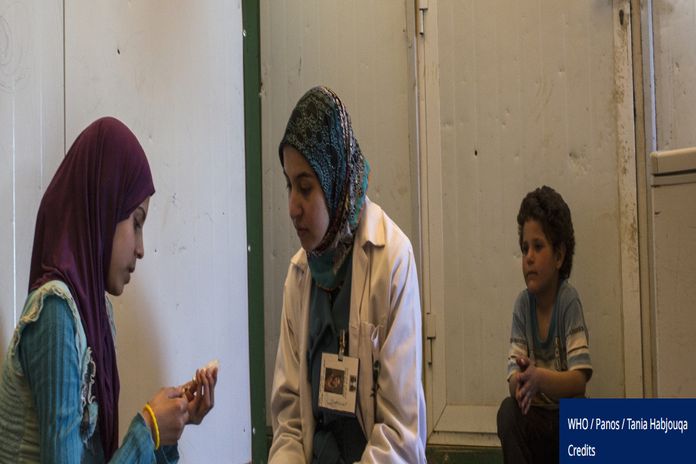DENMARK / SWITZERLAND – Noncommunicable diseases (NCDs), such as cardiovascular disease, cancer, chronic respiratory disease and diabetes, are responsible for 75 percent of deaths worldwide. People affected by humanitarian emergencies are at increased risk of NCDs. It is estimated that strokes and heart attacks are up to three times more likely following a disaster.
However, care and treatment for NCDs are often not included as a standard part of humanitarian emergency preparedness and response, which focus on the most immediate needs.
To support, integration of essential services for NCDs into emergency preparedness and humanitarian response, the World Health Organization (WHO), the Kingdom of Denmark, the Hashemite Kingdom of Jordan, the Republic of Kenya, and UNHCR, the UN Refugee Agency, are jointly convening a global high-level technical meeting on NCDs in humanitarian settings on 27-29 February in Copenhagen, Denmark.
Humanitarian emergencies in recent years are becoming more complex and interconnected. Hunger and shortages of essential goods exacerbate geopolitical conflicts, ecological degradation and climate change, resulting in more frequent and extreme natural disasters.
The number of crises impacting people’s health has been increasing. During 2023, WHO responded to 65 graded health emergencies worldwide, up from 40 a decade earlier. In the same year, UNHCR issued 43 emergency declarations to scale up support in 29 countries – the highest number in decades. United Nations estimates show that 300 million people will need humanitarian assistance and protection in 2024 with over half (165.7 million) in need of emergency health assistance.
“People living with NCDs in humanitarian crises are more likely to see their condition worsen due to trauma, stress, or the inability to access medicines or services. The needs are enormous, but the resources are not,” said WHO director-general Dr Tedros Adhanom Ghebreyesus. “We must find ways to better integrate NCD care in emergency response, to protect more lives from these avoidable tragedies and improve health security.”
Refugees often face limited access to health care, which can be compounded by poor living conditions, financial difficulties, and precarious legal status. NCDs accounted for a significant proportion of all deaths in the top countries of origin of refugees under UNHCR’s mandate: 75 percent in the Syrian Arab Republic, 92 percent in Ukraine, 50 percent in Afghanistan and 28 percent in South Sudan.
“As forced displacement grows, we must work to ensure the right to health of refugees, other forcibly displaced people and host communities. It is imperative that the policies, and resources are in place to support the inclusion of refugees in national health systems, including for access to care for noncommunicable diseases,” said Filippo Grandi, UN High Commissioner for Refugees. “We must be innovative, and work with governments and partners to respond to such challenges.”
Building solutions and momentum
There are many solutions countries and partners are putting in place to save more lives from NCDs among people affected by humanitarian crises. Since 2017, more than 142 000 WHO NCD kits containing various essential treatments for diabetes, hypertension, asthma, and other medicines have been disseminated. Each kit provides affordable, safe and dependable access to lifesaving NCD medicines and supplies for 10 000 people for over three months. These have been distributed to 28 countries affected by conflicts and or natural disasters and placed in humanitarian hubs including Gaza, South Sudan and Ukraine.
Many countries have included policies and services for the prevention and control of NCDs as part of their efforts to strengthen health systems to better prepare for, respond to, and recover from health emergencies. These efforts are aimed at achieving strong and resilient health systems with primary health care (PHC) and universal health coverage (UHC) as a foundation.
However, much more needs to be done. Some specialized services such as dialysis or cancer care require specific planning and adaptations during emergencies, and more insights are needed to better integrate NCDs into emergency preparedness and response. NCDs remain a neglected aspect of humanitarian responses, with significant gaps in technical and operational guidance, lack of capacity and resources.
Today’s global high-level technical consultation provides a critical platform to share best practices for effectively supporting Member States in delivering NCD prevention and control services within humanitarian responses. The outputs of this meeting will contribute to the 2024 progress report to the UN secretary-general, informing plans for the Fourth UN high-level meeting on NCDs scheduled for 2025.





